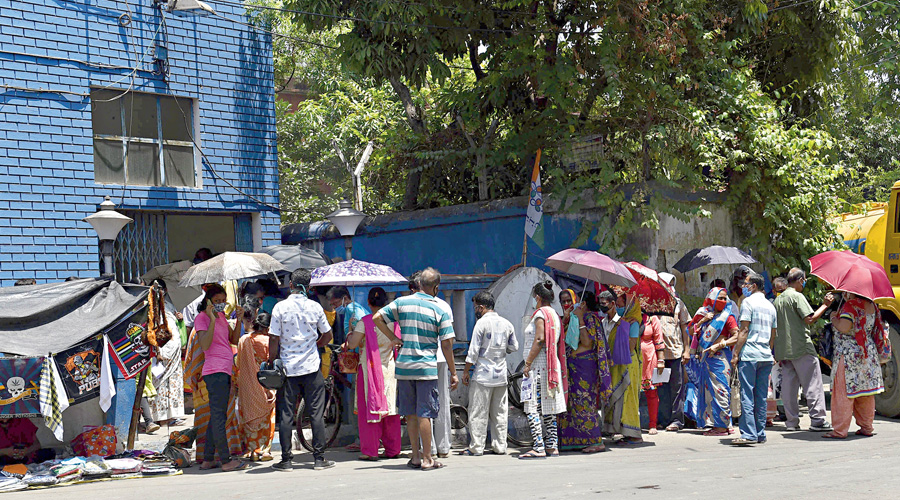A surge in Covid-19 cases has allegedly given rise to instances of suppression of infections in housing societies and neighbourhoods either because of the fear of social stigma or restrictions on the entry of maids at home.
Residents in several housing societies have alleged that they have come to know about their neighbour testing positive only through “second hand sources” like a maid or driver in the recent past.
Multiple cases of alleged suppression have been found in a south Calcutta residency that has several reported cases of Covid-19 at present, a resident of the housing society said. “Despite repeated reminders from the RWA to not suppress information, three families were found to have been affected who did not tell anything before the word got out,” the resident added.
In one of the cases, the family had asked their maid not to come and the word got leaked to the other flat owners who also had the same maid.
In a housing society on the southern fringes of the city, another case apparently came to fore when the news of a person testing positive spread through his office colleague to another resident of the same housing.
An official of an RWA in a housing society along EM Bypass said there were four “Covid cases” in their housing society at present and the way all of them were suppressed had prompted them to issue a notice asking residents “to cooperate”.
According to a public health specialist, such instances of suppression not only increase the chances of spreading infection among people who interact with the affected person without realising the stakes, but also endanger the family members if they, too, are living in the same house without isolating the patient.
“The rule says a person should remain isolated for 17 days from the onset of symptoms. In case of suppression, if the biomedical waste is not disposed of separately, it may spread infection,” said the public health expert.
The cases of alleged suppression, as reported in many housing societies and city neighbourhoods, are also an indication of the kind of ostracism families often have to face when they report infection.
Last year, police had received several complaints seeking immediate help against ostracism that patients in home quarantine had faced, many police officers recalled.
“On one hand, we were prosecuting people for not following the lockdown rules and on the other, we were trying to pacify people for over-reacting to their neighbours who tested positive or to those who were involved in the health sector,” said a senior police officer in Calcutta.
A section of the people who have been victimised for being a Covid-19 patient said the stigma of being treated as an “untouchable” in the society was the biggest fear that plays at the back of the mind.
Last year, a 42-year-old IT professional living in a Kasba neighbourhood was forced to seek police help when his maid was told by neighbours not to step into his home even after he had recovered from the infection and returned from the hospital with a fitness certificate.
A doctor, who had tested positive in September 2020 and was in home isolation at his Shibpur ancestral home, recalled his last year’s experience to Metro: “I had borne the cost of getting the entire neighbourhood fumigated. But then also, some of my closest neighbours who saw me grow up, used to panic and behave indifferently if they saw me standing at my balcony.”











